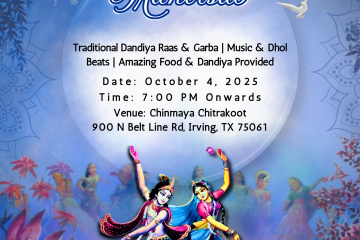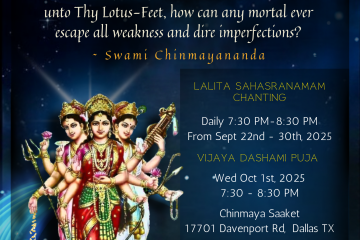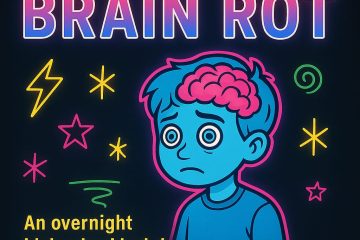Janmasthami
EXPERIENCE THE BIRTH OF LORD KRISHNA
Swami Chinmayananda
Today (Janmashtami) is a wonderful day. The Lord is
coming, so people fast. Devaki is in pain, therefore you do not eat food.
Fasting is upasana, i.e., to live near the Lord (Upa-asanan).
Attunement to the Lord through meditation is fasting. While contemplating, it
is an agony to eat. For intellectual work, eating food and indulgence in the
world outside is detrimental, for Krishna’s birth is enlightenment. Food means
satisfaction for the senses. Uplift them to contemplation. The thick darkness
has come. Be brave, light will dawn. There must be no fear. The sun has dawned
in our bosom. Thus we turn inward in meditation. In the silence of the heart,
in spite of thunder, we must remain for a sufficiently long time. Then only, in
that long-earned tranquility, will we experience, the birth of Krishna, the Light.
The Blue Boy of the Jamuna banks —ever clothed in yellow garb, and
singing away upon his flute, sending everyone around him crazy in delight and
joy— is a maddening picture of endless Vedantic suggestions and import.
Krishna in Vrindavanam was an embodiment
of joie-de-vivre. His flute, shepherd’s reed to be precise was the symbol of
his carefree, light-hearted life of chaste joys and unearthly bliss. Krishna is, perhaps, the only prophet (avatar) that was never known to have
wept—ever laughing, ever enthusiastic thirsty to live, hungry to experience.
He was in love with life—be it on the Jamuna banks, in political discussions,
in home scenes, in the war-front. He was Life itself—that warm radiant Life!!
He led the hectic crowd of the gay gopa boys and the giggling bunch of gopi
girls always followed Him.
Again ever energetic and enthusiastic, he courted all
those in trouble with His Infinite cheer, solved all their problems and lived
tirelessly serving others. He constantly remained in everything and yet far
away from all!! He was the center of attraction—He was the most important
personality in all the major political events in India of His time!! He
advised, but never imposed His will upon others. He seemed to watch from afar,
though living under the same roof. He actually lived all His life, what he
preached in the Gita later, without attachment, loving, serving and working but
caring not for the fruits: he ever mingled with every-thing, yet was far away
from all, always. A perfect yogi, he lived a life full of activity
serving all at all times—but keeping Himself more as a spectator of all
happenings. He lived here amidst all more as a sojourner upon the earth than a
native of it!!


